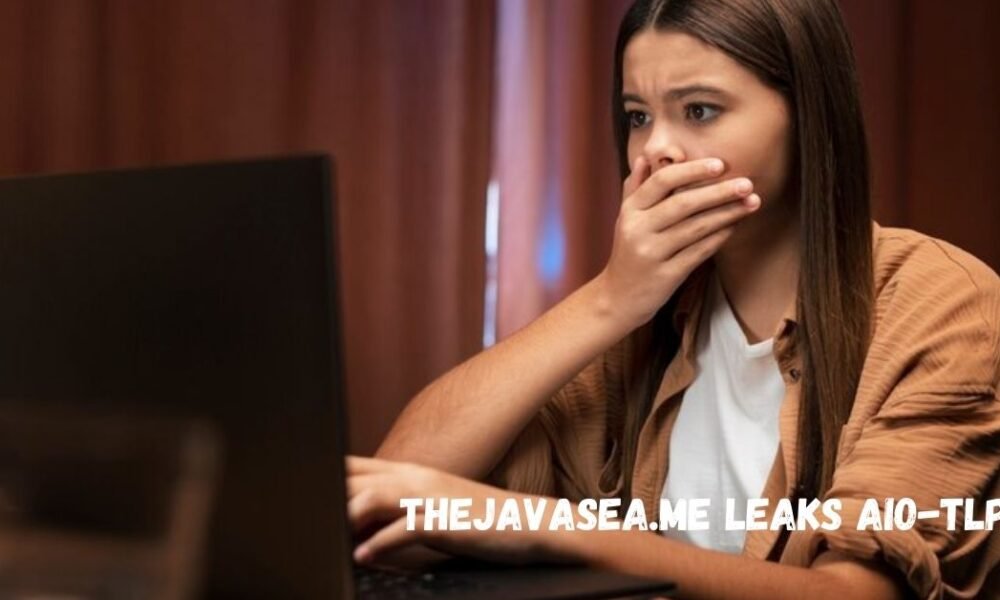thejavasea.me leaks aio-tlp The world of online data leaks has always been a topic of intense scrutiny and interest. From whistleblowers to hacking forums, the internet remains a treasure trove of both wanted and unwanted information. Recently, a particular buzz has surrounded “thejavasea.me leaks aio-tlp.” For those unfamiliar with these terms, this article will delve deep into the subject, uncovering what makes this topic so intriguing while maintaining a conversational and insightful tone. Let’s dive into the details and separate the myths from the facts.
What is “thejavasea.me leaks aio-tlp”?
“thejavasea.me leaks aio-tlp” might sound like a maritime domain, but it has nothing to do with sailing. Instead, it’s a niche platform that has drawn the attention of cybersecurity enthusiasts, data miners, and, unfortunately, malicious actors. But what exactly is it? Is it a blog, a repository, or a black-market data exchange?
Firstly, “thejavasea.me leaks aio-tlp” operates in a murky corner of the web. While it’s not a darknet site, it does skirt the edge of mainstream legality in how it shares and disseminates information. At its core, the site appears to be a hub for aggregated leaks—data collected from various breaches and shared publicly or semi-publicly.
This platform offers what it claims to be “All-In-One Threat Landscape Protocol” (AIO-TLP). To put it simply, thejavasea.me leaks aio-tlp provides access to various data sets, sometimes packaged in ways that can be used for both ethical and unethical purposes. While there are valid discussions around transparency and open data, the method and intention behind these leaks raise ethical questions.
The Origins of thejavasea.me leaks aio-tlp
It’s unclear who started this platform, as the owners have kept their identities anonymous. Like many websites dealing in leaked information, anonymity is paramount—both for the site’s creators and its users. Operating anonymously allows the platform to function without being directly targeted by law enforcement or affected parties.
Speculation abounds regarding its geographic origin. Some cybersecurity experts suggest it could originate from regions with lenient cyber laws, while others argue it’s simply the work of an individual or small group with a keen interest in exploiting vulnerabilities in the digital age.
What Does “thejavasea.me leaks aio-tlp” Stand For?

The term AIO-TLP is central to thejavasea.me leaks aio-tlp identity. Breaking it down:
- All-In-One (AIO): This signifies a comprehensive collection of data. Instead of offering fragmented or partial leaks, the platform promises to deliver complete packages.
- Threat Landscape Protocol (TLP): This is a cybersecurity term often used to describe strategies for understanding and mitigating threats. However, in this context, it’s more about providing tools or data sets that could be used to navigate the cyber threat landscape—for good or ill.
This combination makes thejavasea.me leaks aio-tlp a unique platform. By presenting itself as an “AIO-TLP,” it essentially markets itself as a one-stop-shop for data leaks, giving users access to everything from personal credentials to corporate secrets.
Why the Name “AIO-TLP” Matters
While the term sounds professional, it’s not officially recognized in the cybersecurity world. It’s more of a self-coined term meant to attract attention from both professionals and less ethical actors. The marketing genius of such terminology lies in its vagueness and allure, which can attract a broad spectrum of users.
The Ethical Dilemma of Leaks
When discussing data leaks, one of the most significant debates revolves around ethics. Leaked information can expose corruption, hold organizations accountable, and empower whistleblowers. However, it can also lead to personal harm, identity theft, and financial losses.
The Fine Line Between Transparency and Privacy
thejavasea.me leaks aio-tlp often markets itself as a platform for transparency, claiming its actions promote awareness. However, transparency must be weighed against privacy concerns. Sharing sensitive data, such as personal email addresses, passwords, or even proprietary company secrets, crosses ethical boundaries.
Many argue that such platforms erode trust in online systems. When users fear their information might be leaked, they become hesitant to engage in digital activities, which can have far-reaching consequences for businesses and individuals.
Impact on Individuals and Organizations
The consequences of data leaks are profound. For individuals, leaked information can lead to identity theft, harassment, and financial ruin. For organizations, it can mean reputational damage, financial losses, and even legal consequences. Platforms like thejavasea.me leaks aio-tlp often dismiss these concerns, framing their actions as a form of digital activism. However, the collateral damage is hard to ignore.
The Role of Cybersecurity in Mitigating Risks
In the face of platforms like thejavasea.me leaks aio-tlp, cybersecurity measures become critical. Organizations and individuals must adopt best practices to protect themselves from becoming victims of data breaches.
Strengthening Password Hygiene
One of the simplest yet most effective measures is improving password hygiene. Strong, unique passwords and the use of multi-factor authentication (MFA) can significantly reduce the risk of unauthorized access.
Regular Software Updates
Keeping systems and software up-to-date is another essential practice. Many breaches occur due to vulnerabilities in outdated software. Regular updates ensure that known vulnerabilities are patched.
Awareness and Training
For organizations, educating employees about cybersecurity threats is vital. Phishing scams, for instance, remain a leading cause of breaches. Awareness campaigns and regular training sessions can empower employees to recognize and avoid such threats.
Legal and Regulatory Implications
Operating a platform like thejavasea.me leaks aio-tlp is fraught with legal challenges. Many countries have strict laws against the dissemination of stolen data. However, enforcing these laws becomes complicated when the platform operates anonymously and potentially across multiple jurisdictions.
The Challenges of Enforcement
Cybercrime is notoriously difficult to police, particularly when it involves anonymous platforms. International cooperation is often required, which can be slow and bureaucratic. This allows platforms like thejavasea.me leaks aio-tlp to continue operating with relative impunity.
The Role of Governments
Governments play a crucial role in combating data leaks. By investing in cybersecurity infrastructure, enforcing stricter regulations, and fostering international collaboration, they can reduce the prevalence of such platforms.
The Future of Data Leaks
As technology evolves, so too does the nature of data leaks. The rise of AI and machine learning introduces new challenges and opportunities in the fight against cybercrime.
Predictive Threat Analysis
AI can be used to predict and identify potential threats before they occur. This proactive approach can help mitigate the impact of data leaks.
Enhanced Encryption Techniques
Advances in encryption technology will make it harder for malicious actors to access sensitive data. However, this also means that platforms like thejavasea.me leaks aio-tlp will need to evolve their methods to remain relevant.
Greater Accountability
As awareness around data privacy grows, there will likely be increased pressure on organizations and platforms to operate transparently and ethically. This shift could reduce the appeal of platforms like thejavasea.me leaks aio-tlp.
Conclusion
The topic of “thejavasea.me leaks aio-tlp” is as complex as it is controversial. While the platform markets itself as a hub for transparency and information sharing, its methods and implications raise significant ethical and legal concerns. As individuals and organizations, staying informed and vigilant is our best defense against such threats. In the ever-changing landscape of cybersecurity, knowledge truly is power.






